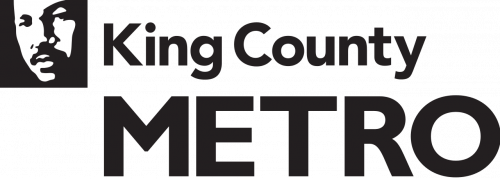Will Metro’s New Union Contract Bring More Service?
 A few weeks ago, Lizz reported that the union representing Metro bus drivers, mechanics, and service supervisors (among others) approved a new collective bargaining agreement with significant changes to work rules. The most notable of these changes is that part-time Metro drivers can work on weekends. In exchange, union negotiators secured two big concessions from Metro. First, Metro accepted a lower ceiling on the number of part-time drivers, with the limit changing from 45 percent to 33 percent of all drivers. Second, Metro agreed that no drivers, either full- or part-time, will have to work split shifts on weekends. The changes will be effective in September 2018.
A few weeks ago, Lizz reported that the union representing Metro bus drivers, mechanics, and service supervisors (among others) approved a new collective bargaining agreement with significant changes to work rules. The most notable of these changes is that part-time Metro drivers can work on weekends. In exchange, union negotiators secured two big concessions from Metro. First, Metro accepted a lower ceiling on the number of part-time drivers, with the limit changing from 45 percent to 33 percent of all drivers. Second, Metro agreed that no drivers, either full- or part-time, will have to work split shifts on weekends. The changes will be effective in September 2018.

Far from being the arcane, inside-baseball news you might think, this is a major win-win for Metro and the union, and a big deal for Metro riders. If implemented well by Metro, it could result in more service on the road for the same amount of money. Depending on how drivers ultimately choose to pick their work under the new rules, it could also make driver recruitment easier-important in an era where Metro has been struggling to keep enough drivers to operate current service, let alone add significant service hours as funded by the City of Seattle and contemplated by Metro's own Long-Range Plan.
To explain why this is such good news, we'll have to dive into the murk of bus-driver work rules a bit, below the jump.
There are essentially two types of bus assignments. The first is all-day work, where a bus stays on the road from early morning until sometime at night using multiple drivers. Most bus riders have had the experience of waiting through a driver change while riding a bus that's on an all-day assignment. The other kind is "tripper" work, where a bus stays on the road only for a few hours and then returns to base. Almost all tripper work exists to add capacity during rush hours, and thus happens on weekdays.
Buses on all-day work may be on the road for widely varying lengths of time, anywhere from 11 to 25 hours. This means most all-day bus assignments don't divide evenly into the 8-hour shifts usually worked by full-time drivers. To make most all-day bus assignments work, there has to be at least one shorter shift, anywhere from 2 1/2 to 7 hours long. Such a shorter shift may be worked by a part-time driver, or it may be worked by a full-time driver doing a split shift.
Under the old work rules, with no part-time drivers allowed to work weekends, Metro had unsatisfactory solutions for this problem. On Saturdays, it assigned an extraordinary number of full-time drivers to work split shifts. (During my 3+ years as a full-time driver at Metro, I never became senior enough to avoid a split shift on Saturday.) This solution was efficient, but resulted in terrible working conditions for many drivers. On Sunday, no split shifts were permitted. All-day bus assignments that did not fit neatly into a multiple of 8 hours were scheduled using shorter or longer shifts. Drivers working shorter shifts were still paid for 8 hours, despite working as little as 5 1/2. Drivers working longer shifts, sometimes as long as 11 1/2 hours, got paid overtime for every minute over 8 hours. This solution was pleasing to drivers, but spectacularly cost-inefficient. It, in large part, explains why Sunday service is so much less frequent and shorter-spanned than Saturday service.
Now, with the ability to schedule weekend part-time shifts, Saturdays will get much more pleasant for drivers, while Sundays will get much more efficient. In theory, this should allow for more service hours on weekends. Metro's Scott Gutierrez confirmed by email that Metro expects weekend scheduling to become more efficient as a result of the agreement, even with the improvement in working conditions for full-time drivers on Saturday. Asked whether improved efficiency would translate into Sunday service additions, he responded: "The CBA doesn't really change Metro's service plans, although it complements and supports the direction Metro is headed with an increasingly all-day service profile as envisioned in Metro Connects." In other words, if additional service hours can be added, they will be added consistent with Metro's overall service planning priorities, with no special attention to Sunday.
To match the "increasingly all-day service profile" Mr. Gutierrez described, Metro has been increasing its full-time workforce over the last few years, in conjunction with the economic recovery. Today, part-time drivers make up just 34.8% of Metro drivers, down from percentages in the low 40s several years ago. All-day service will make up even more of Metro's total service hours under Metro Connects, as hours now devoted to long-distance peak express routes that will be replaced by Link or Sounder are redirected into high-frequency, all-day feeder services. Accordingly, Metro's concession on the number of part-time drivers ends up aligning well with the agency's expected future needs.
While all of this is encouraging, it will be some time, and require some careful parsing of data, before we can tell just how beneficial the new contract is. If Metro's total cost per service hour does not rise as fast as its total expenses in 2019, it is very likely that the new contract deserves at least some credit. On the other hand, if cost per service hour rises unabated, then the new contract may not be as helpful as we hope.